Key strategies /
HAVE THE BEST PREPARED AND MOST DYNAMIC TEAM POSSIBLE
STRATEGIC OBJECTIVES
- Foster training in key professional skills.
- Promote the decentralised management model.
- Adapt the compensation and professional development structure.
- Strengthen the culture of performance-based advancement and diversity.
2015 MILESTONES
In order to develop our meritocratic culture, we are reviewing our professional performance and promotion processes and our compensation structures, increasing the linkage between results and rewards. We are also enhancing the professional development structures for each of our segments. We are fostering new policies and initiatives to promote diversity in all its forms (gender, age, origins, etc). The percentage of women in positions with management responsibilities has increased by one percentage point since December 2014, to 33.3%.
CaixaBank is continuing its major investment in employee development. In 2014 and 2015, 5,813 employees in the branch network were certified as financial advisers. Of these, 5,395 obtained two qualifications: a post-graduate diploma from the Pompeu Fabra University (UPF) and the Chartered Institute for Securities & Investment (CISI) Certificate in Wealth Management. CaixaBank now has more than 7,000 certified financial advisers (1.4 for each branch in its network).
Another highlight was the launch of the CaixaBank Risks School in September, working with the Pompeu Fabra University (UPF) and the Institute of Stock Market Studies (Instituto de Estudios Bursátiles − IEB). 1,137 managers were awarded the Risk Analysts Certificate whilst 494 branch managers and 262 business managers received the Postgraduate Retail Risk Analysis Diploma.
The Bank is also continuing to foster its management development programmes, enhancing its “transformational leadership” model and fostering innovation, mobility and delegation of responsibilities.
Key monitoring metrics
STRATEGIC PRIORITIES 2016
- To continue developing critical professional capabilities and competencies, mainly with regard to customer service and advice, commercial efforts, risks, leadership and team management, and languages.
- To further develop a culture of performance management and assessment of competencies, as key indicators for fostering a meritocracy.
For additional information

















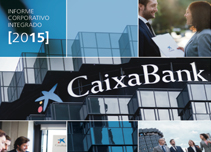
 PDF
PDF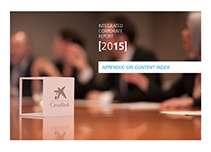
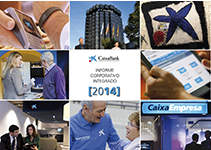
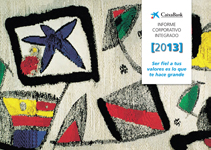
 Microsite
Microsite
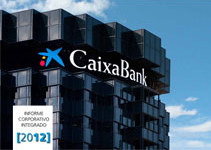




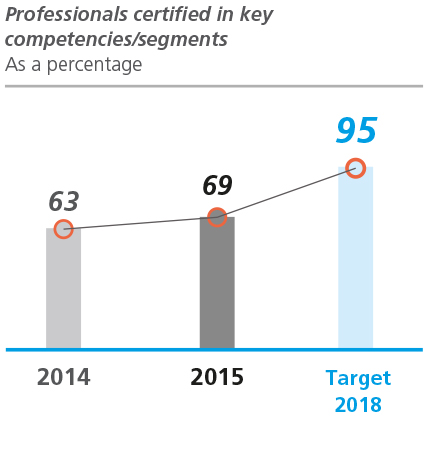
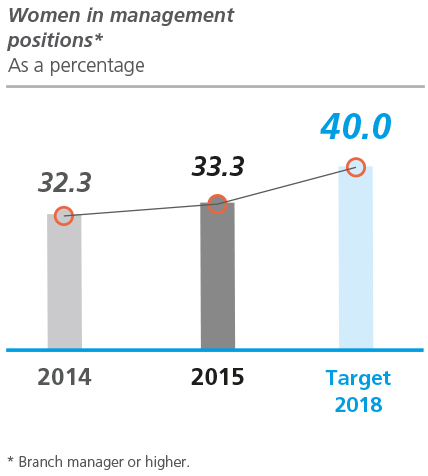


 The Principles of the UN Global Compact covered in the page are:
The Principles of the UN Global Compact covered in the page are: 